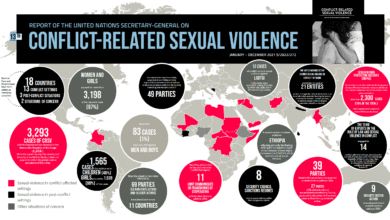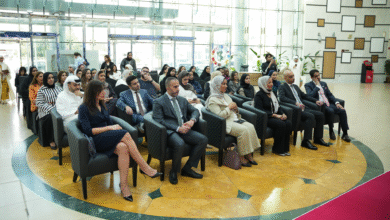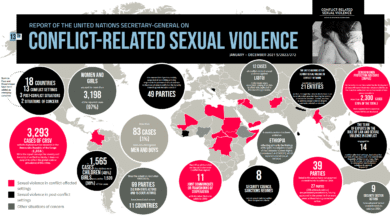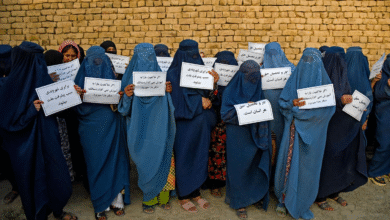Manosphere: Rising Threat to Gender Equality and Safety
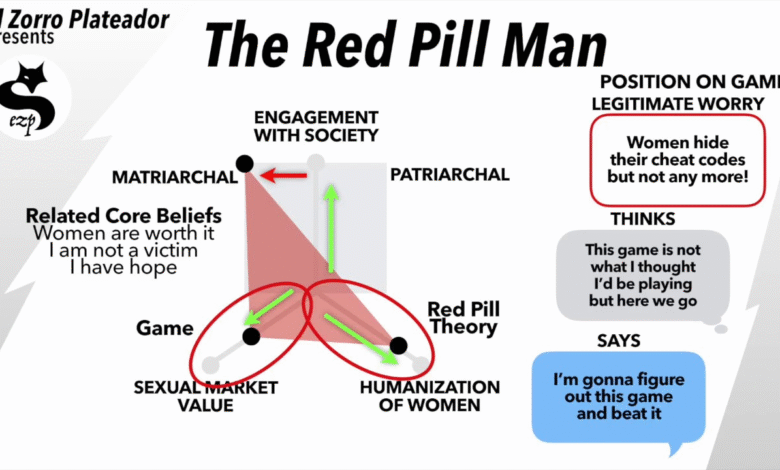
The manosphere has rapidly emerged as a concerning phenomenon in digital culture, significantly affecting discussions surrounding gender equality. Comprising various online communities, these groups often promote toxic masculinity and encourage boys seeking validation through harmful ideologies. As highlighted by UN Women, such platforms have become breeding grounds for online misogyny, propagating views that objectify women and dismiss their rights. This troubling trend shows how the manosphere reaches beyond the internet, influencing young men’s perceptions, attitudes, and even relationships in everyday life. To combat the implications of this evolving landscape, it’s essential to understand the dynamics at play and address the roots of these destructive narratives.
The rise of male-centric online communities, often referred to as the ‘men’s rights movement’ or even ‘male empowerment forums’, points to a deeper societal issue. These networks provide a space where boys and young men can seek affirmation and guidance, yet they frequently encounter messages steeped in misogyny and toxic beliefs about gender roles. As organizations like UN Women emphasize, the impact of this online culture extends into real-world interactions, often undermining efforts toward gender equality. The rhetoric within these spheres not only shapes opinions about masculinity but also affects the self-esteem and behavior of the boys engaging with these communities. By exploring these terms, we can better understand how digital spaces influence gender relations and foster harmful stereotypes.
The Rise of the Manosphere and Online Misogyny
The manosphere has emerged as a potent force in contemporary discussions about masculinity and gender dynamics. Initially existing in the shadows of the internet, this network now stands as a significant influence on the perceptions of masculinity, shaping thoughts through potent imagery and rhetoric. Online misogyny and the toxic narratives propagated within the manosphere are fundamentally intertwined, reflecting and reinforcing harmful stereotypes about women. UN Women has raised alarms that this trend not only threatens gender equality but also fosters an environment where hate and discrimination become normalized.
Understanding the implications of the manosphere’s rise necessitates examining the frameworks through which these communities operate. Often rooted in resentment towards feminism and societal progress, individuals in these online spaces share narratives that vilify women and encourage harmful ideologies that frame men as victims of modern societal changes. The widespread accessibility of these discussions, especially among young men seeking validation and connections in their formative years, underscores the urgent need to confront these ideologies and promote a more equitable perspective.
The Impact of Toxic Masculinity on Young Men
Toxic masculinity, as propagated by certain segments within the manosphere, profoundly affects boys and young men. This cultural narrative suggests that vulnerability, emotional expression, and traits traditionally associated with femininity are weaknesses, pushing young men toward destructive behaviors and unhealthy relationships. They often seek validation in communities that assert a traditional and rigid view of masculinity, leading to detrimental consequences for both their mental health and their interactions with women. The pressure to conform to these outdated models of manhood can result in feelings of inadequacy and contribute to the cycle of misogyny.
Moreover, the misguided search for identity among boys leads many to consume content that reinforces toxic ideologies. As highlighted by UN Women, young men are increasingly engaging with masculinity influencers who often endorse extreme narratives. This engagement can create environments where negative stereotypes about women are perpetuated, further entrenching the divide between genders. Implementing educational initiatives that challenge toxic masculinity and promote healthier models of masculinity is crucial in addressing these issues and fostering a balanced understanding of gender relationships.
The Role of Education in Promoting Gender Equality
Education serves as a vital tool in dismantling the harmful ideologies linked with the manosphere and toxic masculinity. By introducing concepts of gender equality and healthy relationships at an early age, we can arm the next generation with the knowledge needed to navigate their identities and relationships without falling prey to damaging stereotypes. Programs focused on digital citizenship—as advocated by organizations like UN Women—are essential in teaching young people how to critically engage with online content and discern what promotes healthy dynamics versus what harms those societal ties.
Furthermore, educational initiatives must include discussions that confront misogyny directly, inviting students to explore the nuances of gender roles and the repercussions of toxic masculinity. Cultivating empathy and understanding among boys and girls alike creates a supportive environment where both can thrive free from the pressures of rigid gender expectations. A proactive educational approach can help shift perspectives, promoting a more inclusive future that values diversity in expression and fosters equality.
Influence of Social Media Algorithms on Gender Perceptions
Social media platforms play a pivotal role in amplifying the narratives of the manosphere through their algorithms, prioritizing content that is sensationalist and polarizing. This algorithmic bias often rewards posts that propagate misogynistic ideologies, thereby creating echo chambers that reinforce existing biases about masculinity and femininity. The implications of this are far-reaching as young men, in particular, find themselves inundated with toxic messages that champion harmful stereotypes, further solidifying societal divisions.
As these platforms prioritize engagement over the well-being of their users, the spread of online misogyny continues unchecked, influencing how young men perceive their roles in society. The narratives that emerge from these spaces often distort healthy perceptions of masculinity and femininity, leading to deeper societal issues such as gender-based violence and discrimination. Addressing this requires not only a shift in how platforms operate but also critical awareness among users about the content they consume and share.
Youth Engagement: A Path to Resilience Against Online Hate
Empowering youth to engage positively in digital spaces is crucial in combating the toxic narratives associated with the manosphere. Programs designed to build resilience against online hate—such as mentoring initiatives and peer-led discussions—can help younger generations navigate social media more thoughtfully. By equipping boys and girls with critical thinking skills, we encourage them to question misleading portrayals of gender and foster dialogues that embrace equality and respect rather than division.
Additionally, youth outreach tailored toward promoting positive masculinity and gender equality can steer discussions away from the negative impacts of online misogyny. By creating safe spaces for young individuals to express their concerns and experiences, we empower them to stand against toxic ideologies and to advocate for healthier understandings of gender roles. Through collaborative efforts, communities can work towards dismantling the harmful stereotypes perpetuated by the manosphere and cultivate a generation committed to gender equality.
Addressing Online Misogyny: A Collective Responsibility
Countering the rise of online misogyny is not solely the responsibility of individuals; it requires a concerted effort from communities, governments, and organizations alike. Advocacy groups like UN Women call for greater accountability from social media platforms to regulate hate speech and promote safe digital environments. This includes implementing comprehensive policies that tackle the spread of misogynistic content while also providing resources for victims of online abuse. Such a multifaceted approach is essential in creating a culture that values respect and equality.
Moreover, legislation aimed at curbing online hate must be complemented by community education initiatives that focus on promoting respectful discourse and understanding among diverse populations. The homogenization of views within online communities can overshadow the complex realities of gender dynamics, requiring intentional efforts to engage various stakeholders in discussions surrounding gender equality and the impacts of misogyny. Ultimately, fostering an inclusive environment where all voices are heard is key to dismantling the systemic barriers perpetuated by the manosphere.
The Psychological Toll of Misogynistic Narratives
Misogynistic narratives propagated within the manosphere inflict considerable psychological harm on both women and men. For women, the constant barrage of negative stereotypes not only diminishes their sense of self-worth but also perpetuates a culture where they feel unsafe to express their opinions freely. The intimidation and harassment faced, particularly in digital spaces, can lead to severe mental health repercussions, including anxiety and depression.
Similarly, boys and men who internalize toxic messaging about masculinity may struggle with their mental health as they grapple with societal pressures to conform to rigid roles. This dynamic can create a cycle of discontent and further entrench unhealthy behaviors. Addressing these psychological impacts requires awareness campaigns and mental health resources tailored toward men and boys, encouraging open discussions about vulnerability and emotional strength.
Creating Safe Spaces for Dialogue and Support
In light of the pervasive influence of the manosphere and toxic masculinity, creating safe spaces for dialogue is essential. These spaces should enable individuals, particularly young men, to express their concerns while also challenging harmful ideologies without fear of retribution or scorn. By fostering open discussions about masculinity, gender equality, and the consequences of online misogyny, we can cultivate a generation that is more empathetic and aware.
Furthermore, support networks that emphasize mentorship and education can bridge the gap between boys seeking validation and those who advocate for healthier views of manhood. By promoting mentorship programs that pair young men with role models who exemplify non-toxic masculinity, we provide outlets for boys to learn and grow positively. These safe havens encourage personal development free from harmful societal messages, allowing for a more balanced understanding of gender roles.
Advocacy and Activism Against Toxic Online Narratives
Activism plays a crucial role in counteracting the spread of toxic narratives perpetuated by the manosphere. Grassroots movements and campaigns aimed at raising awareness about online misogyny have gained traction, urging digital platforms to take responsibility for the content they host. By mobilizing individuals to advocate for change, we can challenge the status quo and highlight the harmful effects of misogyny in all its forms.
Moreover, as youth become more engaged in these movements, they foster a spirit of activism that encourages critical discussions about masculinity and gender stereotypes. Advocacy efforts that include education about the impacts of toxic masculinity not only highlight existing issues but also empower young individuals to be change-makers in their communities. As more voices join the conversation, there is potential for a substantial cultural shift towards gender equality and mutual respect.
Frequently Asked Questions
What is the manosphere and why is it rising in popularity?
The manosphere refers to a collection of online communities that promote ideas around toxic masculinity and often perpetuate online misogyny. Its rise in popularity can be attributed to young men and boys seeking validation and guidance on topics such as dating and masculinity, often leading them to embrace harmful narratives that portray women negatively and dismiss feminism.
How does the manosphere influence young boys in terms of gender equality?
The manosphere creates environments where young boys are exposed to toxic messages that distort masculinity and demean women. This exposure can hinder progress towards gender equality by shaping attitudes that reinforce harmful stereotypes and encourage misogyny, causing boys to view gender equality as a threat rather than a goal.
What are the risks of engaging with manosphere communities for boys seeking validation?
Boys seeking validation in the manosphere may encounter narratives that exploit their insecurities. These harmful messages can reinforce toxic masculinity, promote dismissive attitudes towards women, and lead to a distorted understanding of gender relations, ultimately affecting their mental health and relationships.
How does online misogyny in the manosphere affect society at large?
Online misogyny within the manosphere contributes to a culture that trivializes gender-based violence and reinforces discrimination. As these toxic narratives permeate society, they can influence political ideologies and behaviors, posing risks not just to individuals, especially women, but to democratic values and social cohesion.
What steps is UN Women taking to combat the rise of the manosphere?
UN Women is addressing the rise of misogyny from the manosphere through research, policy advocacy for digital safety, public education campaigns, and programming that promotes gender equality and digital resilience among youth. Their initiatives aim to challenge toxic masculinity and foster healthier perspectives on masculinity and gender relations.
Why is education important in combating toxic masculinity associated with the manosphere?
Education is crucial in dismantling the foundation of toxic masculinity propagated by the manosphere. Teaching children about gender equality, healthy relationships, and digital citizenship helps cultivate a culture of respect and understanding, preventing harmful attitudes from taking root as they grow.
| Key Point | Details |
|---|---|
| The Rise of the Manosphere | The manosphere is posing a serious threat to gender equality by influencing attitudes and behaviors through toxic online spaces. |
| Online Influence | With millions connected online, digital platforms are being used to spread misogyny, affecting many aspects of life, including schools and workplaces. |
| Need for Validation | Young men often seek validation online, engaging with harmful content that distorts masculinity and fosters misogyny. |
| Effects on Mental Health | Misogynistic narratives can damage mental health and create a hostile environment for women online. |
| Beyond the Internet | Toxic ideologies from the manosphere are influencing culture and politics, trivializing gender violence. |
| Calls to Action | UN Women is pushing for digital safety, survivor support, public education, and youth programming to combat online hate. |
Summary
The manosphere is rising at an alarming rate, threatening gender equality and promoting toxic attitudes towards women. As online communities continue to influence the beliefs and behaviors of young men, it’s crucial to address the harmful narratives that not only affect people on digital platforms but also seep into real-world interactions. Combatting this issue requires a united approach, emphasizing education, public awareness, and strong support systems to dismantle the ideologies that underlie misogyny.

